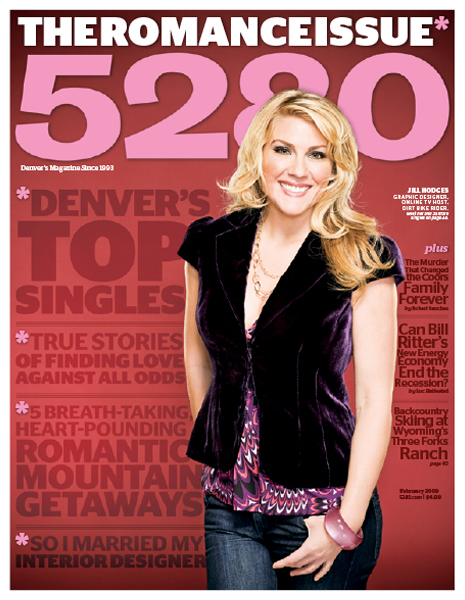The Local newsletter is your free, daily guide to life in Colorado. For locals, by locals.
A small crowd gathers around the magic counter at the Wizard’s Chest costume shop, watching Chad Allen perform a magic trick. Pushing up the sleeves of his green sweater, he places a foam ball, nearly the size of an apricot, into a little boy’s hand. Allen’s dark eyes scan the crowd. “I just give it a snap,” says Allen, “and one becomes three.” The crowd leans in, and when the boy opens his palm: three foam balls. The boy laughs, and grins stretch across the crowd’s faces. Chad Allen, though, can’t see the smiles—or even the crowd.
Allen, who is legally blind, started dabbling in magic 15 years ago while working a part-time job at the Wizard’s Chest, the enormous costume and magic shop in Cherry Creek North. When the shop’s magician no-showed, then disappeared completely, Allen took over the magic counter, and began teaching himself the simple, inexpensive tricks the store sold. Allen was a natural magician, quick to pick up the nuances of the tricks, and soon he was regularly drawing crowds to the magic counter.
But Allen, who had been diagnosed with retinitis pigmentosa, a progressive degenerative eye disease, when he was 15, was losing his vision. After four years of working the magic counter at the Wizard’s Chest, at the age of 25, he was legally blind. He couldn’t read; he couldn’t cross the street by himself; he couldn’t go to the grocery store. “I became a second-class citizen over those 10 years,” says Allen. “I felt like I was losing my ability to be free; losing my ability to choose what kind of a life I wanted to live…and I didn’t know how to get it back.”
In 2001, he enrolled at the Colorado Center for the Blind, a well-respected training center for the blind, where he learned braille and how to use a cane. He also hooked up with the National Federation of the Blind, which sent him to California to lobby the state Legislature to increase blind literacy standards and non-visual access to public facilities. While on the West Coast, he continued learning and performing, earned a degree in magical arts from the Chavez Studio of Magic, and became a member at the Magic Castle in Hollywood. When he moved back to Colorado in 2007, he landed a job as a spokesman with En-Vision America, an adaptive-technology company that sells a scanning device that reads prescription bottle information to the elderly and blind.
Beating blindness, says Allen, is about technology and confidence, but it’s also about public education, and Allen has found that magic is his most powerful tool for teaching. “It takes a lot of soul searching, a lot of listening to the opposition and getting past it to find what it is you want to do in life,” says Allen. “For me, it’s magic, it’s speaking to people. Learning magic is empowering. It gives me freedom.”









